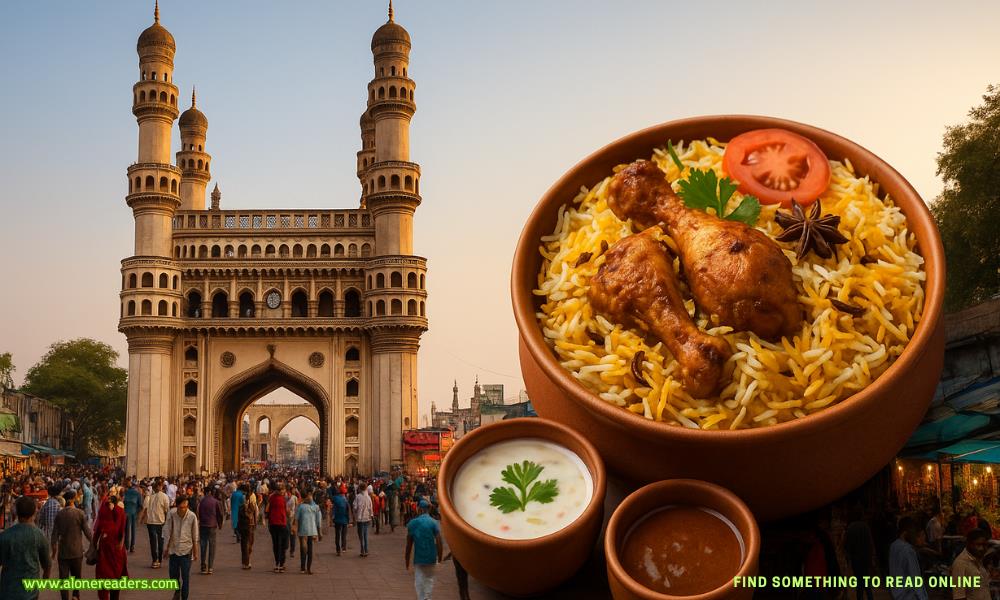Page 54 of Love Story
“They want you to go back?”
I snorted.That was the last thing Crendon would want.“There was some trouble there, and I got myself too involved.”Horror hit me.“No, I don’t mean I was involved in the trouble, I mean… shit… I found out something and I told people who could do something about the thing, and…” I wasn’t making any sense.“NDAs,” I finished lamely.
“Okay,” he said after a pause, standing and draping my coat over the back of the sofa.He walked into the kitchen, brushing past me with a kiss to my cheek that felt too brief, too polite.
“Okay.”
“And you’d tell me if you were in trouble?”
“Iamin trouble,” I blurted and wished I hadn’t said a thing when he tensed as though he expected trouble to come through the door.“What I did, what I found, it makes me part of something I don’t want to be part of.”
“Is it the kind of trouble that can hurt you?”
“No, and I promise I won’t let it follow me here.”
I’ll leave before it could.
“I don’t care about that,” he said as if that was the truth.He probably thought that, but if my name was dragged any deeper into the swamp that was Crendon then no one in my orbit would go unscathed.
“You should care.”
He smiled at me.“I care aboutyou.”
“I wish I didn’t have secrets.”
“You’ll tell me when you can,” he murmured.Then he searched my eyes, seemingly satisfied, and smiled.“Let’s change the subject.”
“I’m good with that.”We hugged for a while, and somehow, he made me feel it was okay to have my stupid secrets for now.
“I have something I think you might want to see,” he said finally.
“I bet you do,” I teased with a wink.
He blushed—full-on red—and then dipped his gaze.“Not that.Well,that, but not this time.Shit… wait a minute.”
And just like that, he was gone, leaving me with the uncomfortable weight of his acceptance without knowing everything, and the questions I wasn’t ready to answer.
I TOOK OURcoffees to the small table by the sofa, forcing myself to take a deep breath and turn my attention back to the letters.I was so immersed in their story that I didn’t notice when the door creaked open, and Sam returned, carrying a large wooden box withSam’s Stuffpainted on the side in faded letters.
He placed it on the table, then opened it and sifted through what appeared to be a collection of childhood mementos.At last, he extracted a bundle of papers secured with string, the edges of the pages darkened with stains.
“I thought you might like to see this,” he said, dropping it onto the table in front of me.“We were assigned to write a story about someone from history, and I had the perfect candidate.So, this is Samuel P.Caldwell, as told by ten-year-old me.”
A smile tugged at my lips as I picked up the report—this was exactly what I needed.Something straightforward, something that didn’t carry weight.Somethinggood.The string was neatly tied, the paper edges worn and stained to look like an old document.
“I soaked it in tea and baked it in the oven to give it that aged look,” Sam said.“Took forever to dry.”
I loosened the string and opened the first page.Sam’s handwriting stretched across the paper, uneven and bold, the kind of careful effort that belonged to an elementary school project.
“Samuel Philip Caldwell, born in 1880,” I read aloud, “the eldest son of a farmer and the founder of Caldwell Crossing, New Hampshire.”There was an asterisk beside the word founder and an explanation beneath it.“A town founder is like the person who started everything.They chose the spot where the town would be, decided how it should grow, and worked really hard to make it happen.That is so cute.”
Sam shrugged, leaning against the back of a chair.“It’s not Pulitzer-worthy, but I think it works.”
I continued reading, turning the page to find a section titledThings that Were Changing for Samuel.Underneath, bullet points highlighted the advancements of the time, including electric power in towns (though not on the farm) and telephones.There was also a section on a phonograph, which Sam noted was an old-fashioned music player, accompanied by a pasted-in photo.
Another section,What Samuel Used, explained that horses were still used to pull farming equipment and that Samuel cultivated crops and tended livestock alongside his father until they began the maple farm.
When I got to the last page, I was hooked on how cute ten-year-old Sam was, and I read the last of it out loud.“Then he grew a maple farm, the town got big around it, and the railroad was close, and they called the town Caldwell Crossing.The End.”
- Her Irresistible Husband by Marian Tee
- Bratva Past by Sam Crescent
- Unbroken by Jane Henry
- Tattooed Vow by Kat Steele
- Broken by Jordan Marie
- Pleasure Lessons by Jenna Rose
- Craved By Gray by Cassi Hart
- Road Trip With Her Daddy Protector by Lizzie Sparks
- My Tempting Mountain Man by Lizzie Sparks
- Text Me, Take Me by Flora Ferrari
- Twisted Fate by M. James
- Born in Sin by Shilpa Suraj
- Exposed by Samantha Wilde
- Beyond Repair: Part One by Y.V. Larson
- Eternal Pieces by Hana Meadows
- Special Agent Anastacia by Mimi Barbour







